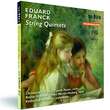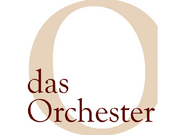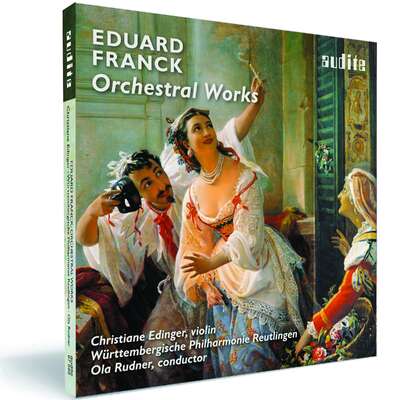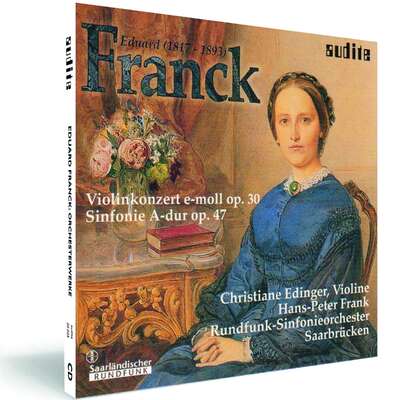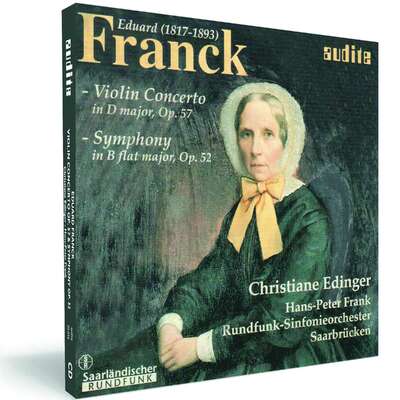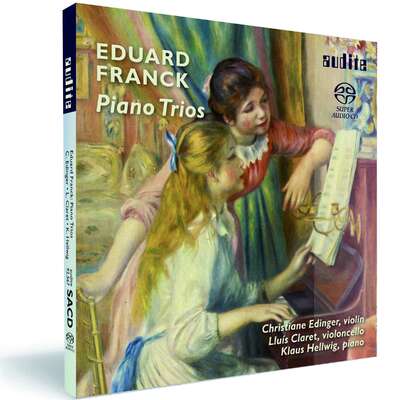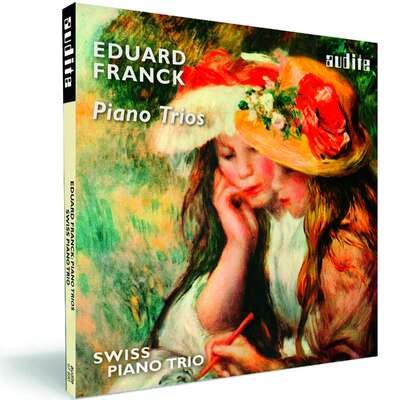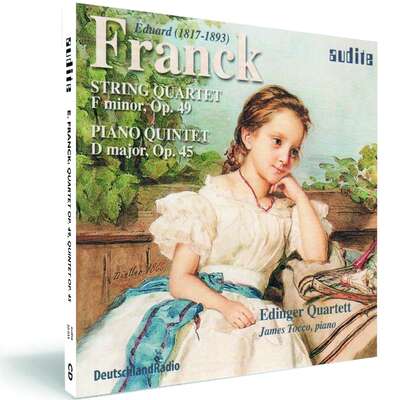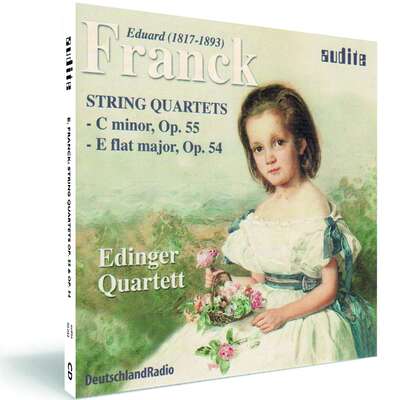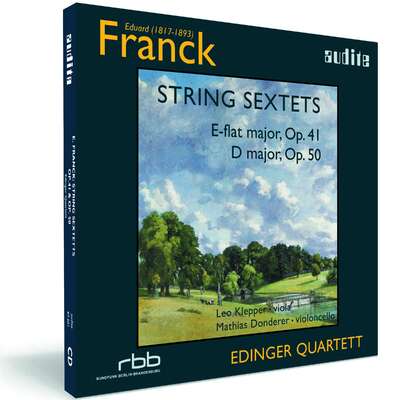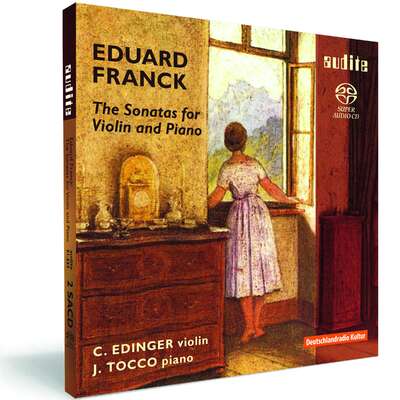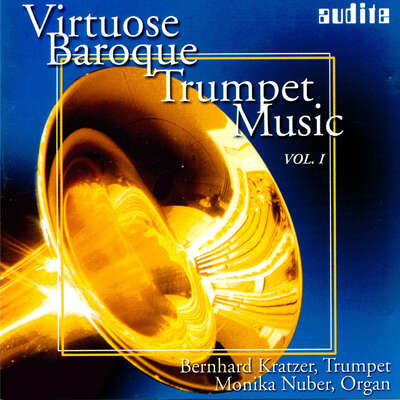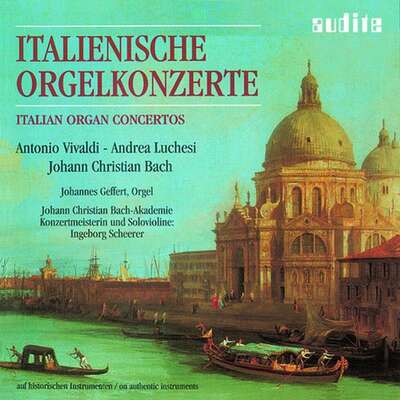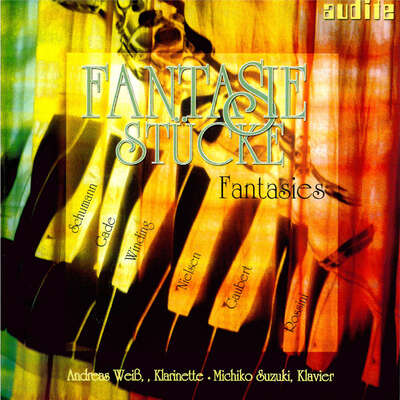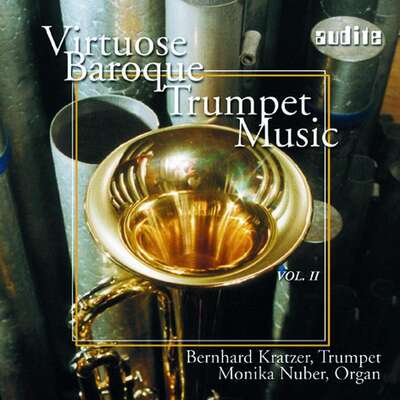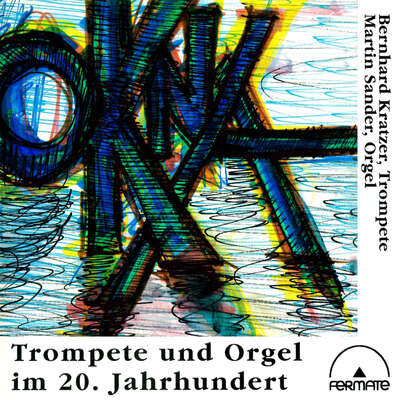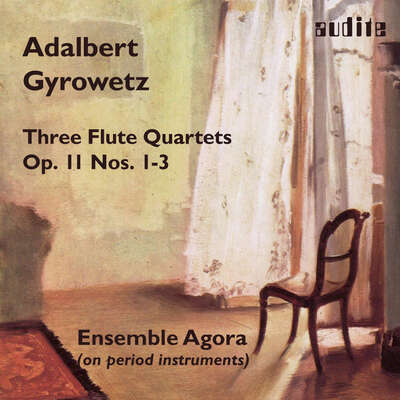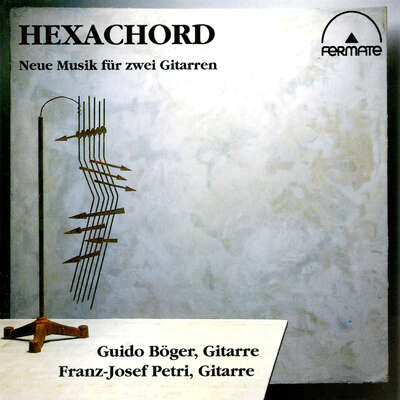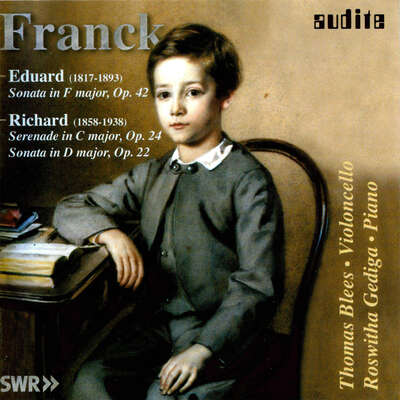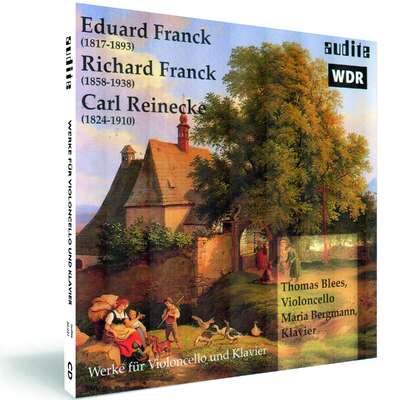
The audite series of chamber music for string instruments by Eduard Franck continues with his two String Quintets Op. 15 and Op. 51 which, once again, demonstrate his originality and noblesse as a composer.more
The players [...] are so delightful, delectable, and delicious in these performances I could just eat them with a spoon. It’s hard to imagine this music being played more spontaneously and joyfully than it is here. (Fanfare)
Details
|
Eduard Franck: String Quintets
Eduard Franck: String Quintets |
|
| article number: | 92.578 |
|---|---|
| EAN barcode: | 4022143925787 |
| price group: | ACX |
| release date: | 6. January 2012 |
| total time: | 70 min. |
Informationen
The audite series of chamber music for string instruments by Eduard Franck continues with his two String Quintets Opp. 15 and 51 which were probably written, respectively, around 1845 and 1870. With these two works, which were composed at a time when demand for high-quality works increased considerably, due to the rapid development of bourgeois concert life, Franck proves, once again, to be one of the most original German-speaking composers of chamber music. Franck's quintets satisfy both "connoisseurs" and "enthusiasts" thanks to their masterful command of contrapuntal techniques, as well as the succinct and memorable melodic and thematic invention which is combined with great dramatic arches. At the same time, the music, thanks to the idiomatic string writing which is carefully adapted to each instrument, develops a noble and stirring spirit whose subliminal melancholy in several respects anticipates Brahms' musical language. The climax is surely the finale of the second quintet which Franck conceived as a theme with ten variations, in which he reveals an astonishing expressive spectrum. The string quintets by Eduard Franck, scored for the standard combination of two violins, two violas and one cello, are first-class additions to the repertoire of nineteenth century chamber music.
Reviews
www.amazon.co.uk | 5 Feb 2013 | J. A. Peacock | February 5, 2013 One of the best releases so far in Audite's Eduard Franck edition
Over the course of the year or so since this disc in Audite's ongoing survey of Franck's music was first released it has easily become one of myMehr lesen
The first quintet is a rare and welcome foray into the minor for Franck (based on the chamber music recorded thus far). The opening statement, with its melodic rise and fall, is – as the booklet essay quite rightly notes – a melancholy one and notwithstanding a more animated passage before the consolatory second subject is presented, that is the prevailing atmosphere of the double exposition; the well-wrought development section introduces a surprising element of drama, however, which is to return after the recapitulation with music of deep feeling in the magnificent coda. Although the vivacious animation of the scherzo stands in marked contrast to the preceding movement, in mood it is not far removed, and remains in the home key – indeed, it is striking in this work how Franck maintains the overall tone even in livelier movements such as the scherzo and the finale, which latter emphatically avoids a major key resolution at the end; even the noble 'Andante con espressione', which opens in the warm key of G major darkens during its course, the beautifully effected contrapuntal writing (one of Franck's undoubtable strengths) contributing much to the increasing air of tension.
The second quintet opens with music of flowing animation, a fine example of Franck's not inconsiderable gift for melody; although in C major, this is not resolutely sunny music (even while it doesn't have the marked melancholy of the earlier work) and presents a more chiaroscuro, bittersweet tone that you will recognise, if you are familiar with Franck's chamber oeuvre, as echt-Franck. The counterpoint that opens the development section, while mostly eschewing the more dramatic gestures of the respective part of the first quintet, introduces a tense, shadowy atmosphere only briefly interrupted by a more forthright central episode. It is followed by an 'Andante' that opens with a striking suggestion that in the tension between major and minor modes, the minor has won out – and indeed, this emotionally profound movement only moves towards the home key of C major at the very end, the solace of the more cantabile secondary material having been challenged on several occasions by the opening statement. Disquiet marks the minuet that follows – a curious decision to choose this "obsolete" form over the scherzo if the dating of the quintet to 1870 is correct but it works nonetheless in the context of the piece as a whole and has a tone that is suitably archaic. This brief, trio-less movement is followed by a finale in theme-and-variations form, a musical device at which Franck is a dab hand and this is one of the best examples of it in his chamber output, I would say: like the preceding movements, there is a mixture of light and shade here and some of the slower variations display the same expressive weight as the "Andante", though the finale eventually concludes with a decisive turn to the major.
As with the previous releases of Franck's music from Audite, the performances are second to none; these are, so far at least, the only recordings of these works but its hard to imagine them being bettered, such is the evident sympathy Edinger and her fellow artists evince for the music not to mention the technical excellence of their playing. The sound quality matches the fine values of the performances and cannot be faulted.
The revival of Eduard Franck's music (and that of his son, Richard, an equally rewarding composer) has until recently been the almost sole preserve of the German label Audite; now, however, Naxos has recorded some of his music** which I am sure – given that label's international profile and broad distribution – will bring Franck's name and music to a wider public. Many who have been following Audite's journey through Franck's extant works will probably already own this disc, but if you have come across the new Naxos release and are wondering where to go next in exploring Franck's chamber music you could do no worse than to try this disc or the same artists' recording of the string sextets, both of which contains some of his most rewarding and enjoyable music. Moreover, for anyone interested in German chamber music during the Romantic period, I would say this is required listening.
Highly recommended.
Das Orchester | 10/2012 | Dirk Wieschollek | October 1, 2012
Eduard Franck muss man als einen weitestgehend vergessenen KomponistenMehr lesen
www.arkivmusic.com | 01.09.2012 | Jerry Dubins | September 1, 2012
In recent years, Audite has released a series of recordings featuring theMehr lesen
Scherzo | n° 276 (julio 2012) | Juan Carlos Moreno | July 1, 2012
Fuera del apellido y de que son más o menos contemporáneos, Eduard FranckMehr lesen
Record Geijutsu | June 2012 | June 1, 2012
japanische Rezension siehe PDFMehr lesen
Ensemble - Magazin für Kammermusik | 3-2012 Juni/Juli | Robert Nemecek | June 1, 2012 Lichte Sanglichkeit
Seitdem das Label Audite den Mendelssohn-Schüler Eduard Franck (18171893)Mehr lesen
Klassieke zaken | DINSDAG 22 MEI 2012 | Doron Nagan | May 22, 2012 Strijkkwintetten
De muziek van de componist Eduard Franck (1817-1893) is ronduit eenMehr lesen
American Record Guide | 02.05.2012 | Gil French | May 2, 2012
These are world premiere recordings of two string quintets, Opuses 15 and 51, by German composer Eduard Franck (1817-93). He certainly knows how toMehr lesen
That’s the main problem with Opus 15. Franck has learned structure and form from his best contemporaries, particularly Mendelssohn (with whom he studied) and Schubert, but here he doesn’t have enough creative ideas to make the work distinctive. In lesser hands some of his harmonic progressions would become really tiresome. His ideas become tedious because they’re not inventive enough to endure the length. Or, to put it bluntly, at some point in each of the four movements I finally said, “Enough already”.
Opus 51 has more substance. Its inner lines pulse with life as the players bring out leading voices, even though II reminds me that Franck writes mainly for the two violins; while strong on form, he doesn’t write much counterpoint. The Scherzo is very nice, and the theme-and-variations finale has the cleverest, loveliest, most inventive writing on the album—which says a lot because the the-me-and- variations form is often the deadliest for even the best composers (just ask Schubert or Beethoven).
The Strad | May 2012 | Julian Haylock | May 1, 2012 Admirable performances of quintets by the 'other' Franck
Audite's laudable exploration of the chamber music of Eduard FranckMehr lesen
Fanfare | May/June 2012, Vol. 35 Issue 5 | Jerry Dubins | May 1, 2012
In recent years, Audite has released a series of recordings featuring the chamber and orchestral music of Eduard Franck (1817–93). This brand newMehr lesen
Not unlike Mendelssohn, with whom he studied, Eduard came from a financially secure and cultured family whose home attracted such visitors as Heine, Heller, Mendelssohn, and Wagner. Franck pursued parallel careers as pianist, teacher, and composer. In the last-named capacity, he was not as prolic as a number of his more famous contemporaries, and as a self-demanding fusspot, he resisted publishing his works until he had polished them to a high degree of perfection. This resulted in much of his output not becoming known until near the end of his life, by which time his very Mendelssohnian musical vocabulary and style had been largely eclipsed by Bruckner, Liszt, Brahms, and the Belgian-French Franck, César.
Eduard’s largest and most significant output falls into the category of chamber music, and being the chamber music maven I am, I’ve collected all of Audite’s previous Franck releases. Listening to them, as well as to this latest disc of string quintets, there are two things I can state unequivocally: (1) in a game of guess-the-composer, you would not be disgraced if you guessed Mendelssohn; and (2) if you love the chamber music of that ilk—and that would include not just Mendelssohn, but the likes of Joachim Raff, Franz Lachner, Niels Gade, Louise Farrenc, Mihály Mosonyi, and that school of mid-19th-century, post-Mendelssohn composers who remained relatively untouched by the influences of Schumann, Liszt, and Brahms—you will love Eduard Franck’s string quintets, as well as all of his other chamber works Audite has made available. I highly recommend them to you in toto.
The players listed in the headnote are so delightful, delectable, and delicious in these performances I could just eat them with a spoon. It’s hard to imagine this music being played more spontaneously and joyfully than it is here. The E-Minor Quintet’s quirky, Mendelssohnian Scherzo is gleeful and giddy, and the C-Major Quintet’s gorgeous and expansive first movement unfolds its fragrant melodies like the petals of a flower, each opening in turn to seek the sun.
Audite’s recording team has picked up the ensemble just right for this exceptionally clean, clear, and vibrant SACD. For those who tend to be skeptical if a piece of music was not written by a composer with a famous name, I can’t urge you too strongly to give Eduard Franck a listen. This is gloriously beautiful music beyond any telling of it.
International Record Review | April 2012 | Colin Anderson | April 1, 2012
If I were writing a two-word review, I'd simply say 'rather nice'. However, you may need to know that Eduard Franck was born in Breslau in 1817 andMehr lesen
Of Franck's string-based chamber music, there are two quintets (both with two violas and thus a further connection to Mozart). They are happily collected here. Each is roughly 35 minutes in duration, each has four movements in a conventional layout and both are well worth getting to know. Neither work quite reaches the genius of the aforementioned composers, yet each is very enjoyable, very listenable and with much to return to. The earlier of the works begins in wistful fashion and with a sense of purpose, the lively Allegro writing engaging through delightful rhythmic élan and lovely melodies. The scherzo includes unexpected use of pizzicato; the slow movement is song-like; and an exuberant finale caps a youthful opus of elegant craftsmanship.
The C major Quintet has darker seams and can be troubled in its emotion. The slow movement is rather anguished, to which the dance-like Minuet (rather than a scherzo) is a charming foil. The only cause for doubt is a rather strenuous set of variations that act as the finale; there isn't quite the level of inspiration here that enlightens the first three movements or indeed the whole of the earlier work.
The performances are excellent, notable for the musicians' individual excellence and their intelligent interaction. If the chosen acoustic is slightly too spacious and a little edgy, the players fill the space with well-prepared performances that leave no doubt as to their belief in this music. Indeed, these two pieces should find many friends.
Pizzicato | N° 222 - 4/2012 | RéF | April 1, 2012 Für Feinschmecker
Zwischen den zwei Streichquintetten von Eduard Franck (1817-1893) liegen 25 Jahre. Das erste entstand um 1845, das zweite um 1870. VeröffentlichtMehr lesen
Das zweite Quintett beginnt mit einem ebenfalls fast viertelstündigen Satz, der mit einem Zitat aus dem langsamen Satz von Beethovens 'Pathetique' überrascht. Hier steht das Andante dann an zweiter Stelle, vor einem seltsam nervösen Menuett, worauf ein umso bedächtiges und fein entwickeltes Variationen-Andante das anspruchsvolle Werk beschließt, das vielleicht nicht ganz so eingänglich ist wie das erste, sich aber bei mehrmaligem Hören sehr reizvoll öffnet.
Das musizierende Quintett ist mit viel Hingabe dabei und macht die Musik zum wirklichen Hörvergnügen. Eine exzellente Kammermusik-CD für Feinschmecker.
allmusic.com | 01.04.2012 | James Manheim | April 1, 2012
Eduard Franck, unrelated to César Franck, was a German (specificallyMehr lesen
abc artes | 21.03.2012 | J. M. Viana | March 21, 2012
Eduard Franck (1817-1893) perteneció, como su maestro Felix Mendelssohn, aMehr lesen
www.clofo.com | 28 February, 2012 | Bob McQuiston | February 28, 2012
As far as romantic composers named Franck are concerned, France may haveMehr lesen
Audiophile Audition | February 3, 2012 | John Sunier | February 3, 2012
Eduard Franck: String Quintets Op. 15 & 51 – Audite
No relation of Cesar Franck, but an important creator of excellent chamber works heard here in their premiere recordings
Violinist Edinger has a special thing for composer Eduard Franck, and hasMehr lesen
